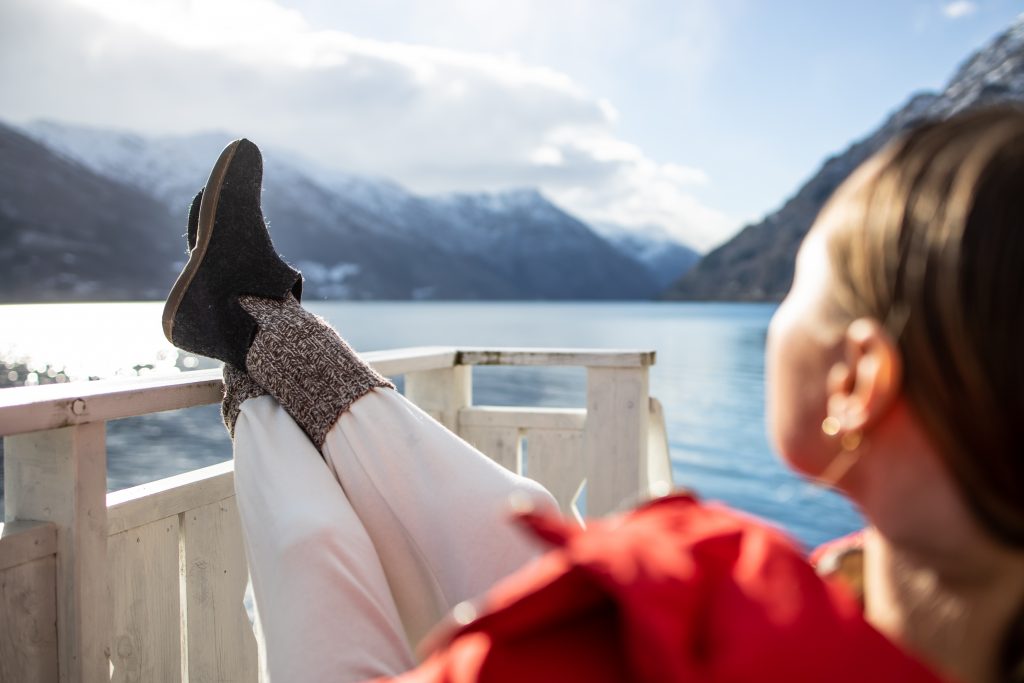When it comes to travelling and going on vacation we want it to be convenient, efficient and relaxing right? The last thing we want is to stress about being sustainably on the cost of our own convenience. We get it! But it’s just not good enough anymore. When we go on vacation we pollute way more than we do in our day-to-day life, and this has to change if we want to keep travelling! The earth is weeping and the polar bears are dying. Face it. We have to take responsibility. So here are 5 ways how to travel more eco-friendly – tips that we personally follow when we travel.

- Compare your transpiration options! – And choose the better option!
It’s easy to Google search information about different ways to transport yourself, your loved ones and your luggage to your destination. One way to do this is to open Google Maps, insert your departure – and destination location and then click on the different transportation options and compare the convenience and estimated time.
Here is a list of different transportation options CO2 emissions per km*
Bike: 0g
Bus: 27g
Train: 37g
Car(diesel): 160g
Ferry(not cruise): 170g
Airplane: 223g
As you can tell by the CO2 emission,
*(Source: GreenMatch.dk)

2. Choose
There are such a big number of hotels and Airbnb accommodations today, and you won’t lose anything (except CO2 emission) by choosing the better alternative. We usually try to find hotels or other kinds of accommodations that communicate that they care about their environmental footprint or the local community in some way. Often, when hotels have taken their environmental care to another level than their competitors they brag about it to add to their own marketing value, so if they really care, it shouldn’t be too hard to detect! Some hotels even have an eco-certification or are listed as eco-friendly hotels on the local tourism agencies websites(e.g: Visit Norway). Another tip is to use Airbnb or borrow your friend’s home, while they are away on a weekend trip. When you borrow someone’s existing home, you don’t support the polluting manufacturing process of building new hotels due to high demands, because you stay in houses that are already someone’s home. Otherwise, just be smart about it! Should you stay in a ‘poluted-construction’ hotel with led lighting, internationally shipped foods and cheap polyester blankets, or should you stay in a 400-year-old wooden house, with a new energy/heat-saving construction, in-season local foods and organic cotton blankets? I think you know the answer.
3. Eat local organic in-season groceries and cut back on the red meat and palm oil
When we are travelling we often tend to spoil ourselves with food and sometimes we have even gained a few pounds when the vacation is over, because we have eaten so well! But the problem is, that the foods that we spoil our own ego with aren’t necessarily good for the environment!
I remember Rasmus and I stayed on this one hotel in Bangkok, which was absolutely amazing but had one major eco-flaw. The brunch restaurant imported all groceries from all over the world. They had lobster from Canada, Caviar from Russia, Jamón ibéricoe from Spain, wine from France and I could go on and on. Sounds pretty fancy and delicious, right? The big problem with this scenario is first of all the imported groceries transportation CO2 emission. Second of all, they served fruits, vegetables and greens that weren’t in season, which means the groceries where either imported as well or harvested from greenhouses, that use a ton of energy on heat and water supply. The third problem was the huge display of meat and especially red meat. Red meat uses a ton of water and food to produce (since it comes from eating, shitting and breathing animal) and the animal releases huge amounts of methane as well.
Fourthly, organic groceries are generally produced with much less water and chemicals, which means less CO2 and less pollution.
The last thing I want to cover is the palm oil, which is in so many cheap convenience foods like cup noodles, instant soups, crisps/chips etc. that are known as amazing and convenient travel companions. The palm oil industry is a big CO2 sinner because they burn down huge parts of jungle, which before it was burned down used CO2 in their photosynthesis and therefore helped the world with reducing the CO2 levels in the atmosphere.
SO, eat organic in-season and local groceries and cut back on the red meat and palm oil ASLO when you are travelling.

4. Behave and don’t over-spend!
Sounds like logic to behave when you are in a foreign country – but it actually isn’t. It is classic vacation behaviour to be a bit more casual about picking up your own waste and overspending, overusing and over-everything! Because you are on vacation, right? You are giving yourself a break, which you deserve. But while you are vacationing, you are probably waste polluting, wasting food, releasing unused heat and water, buying yourself an extra holiday gift e.g. new bikini or swim trousers etc. And the only reason that you are doing that is, that you are on vacation. So next time you think you deserve a little slack, think about the consequences first.
5. Get your home in order before you leave!
So simple, but yet we forget! Turn of the heat, pull the plugs, give your left-over food to your neighbour, rent out your place on Airbnb etc. etc. Making sure that you aren’t using unnecessary energy at home while you are away is another great way to save some CO2. And it might actually save you some bucks – or lets you earn some on renting your place out. So try to remember to do this simple life-hack when you travel next time.









